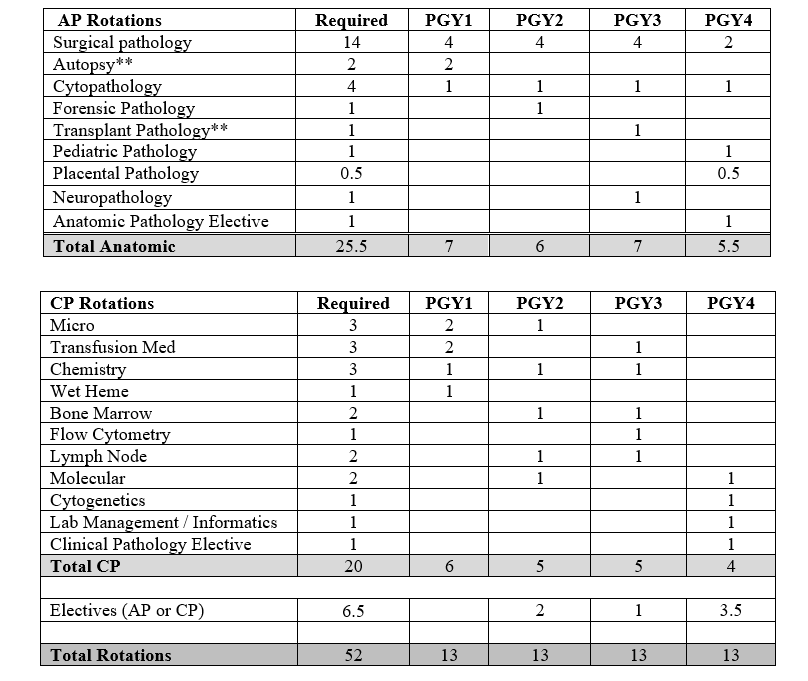- Residency
- Welcome
- Program Details
- Curriculum
- Rotations
- Conferences
- Salary & Benefits
- Facilities and Resources
- Residency FAQs
- Teaching and Research Opportunities
- Health Educators and Academic Leaders (HEA
- Residency Events
- Apply
- Current Residents
- Alumni
- Fellowships
- Awards and Accomplishments
- Contact
- Medical Students
- Related Resources
- About UNMC and Omaha
PROGRAM STRUCTURE
The Pathology training program offers thirteen positions for residents on service-based rotations. Four residents enter the program each year. In addition, there is a Gastrointestinal/Liver and Transplant Fellow, Surgical Pathology Fellow, Molecular Genetic Pathology Fellow, Hematopathology Fellows, and two Clinical Microbiology Fellows involved in resident education. We offer a four-year combined Anatomic Pathology/Clinical Pathology (AP/CP) program that consists of thirteen four-week blocks per year amounting to a total of fifty-two possible rotations. Faculty work with residents to design an elective program that will provide a sound educational experience in the residents chosen area of concentration, allowing flexibility to adapt to the resident’s level of expertise and career goals.
During the elective time, residents are encouraged to carry out basic or applied research and/or spend time pursuing subspecialty training. A detailed description of each of these rotations is presented in New Innovations, including the goals and objectives, which utilize the ACGME core competencies.

**AUTOPSY TRAINING: First year residents will have two months of autopsy training and will be supervised during their first month of training by an upper level resident on the transplant pathology rotation. Following the initial 1st year autopsy training months, residents will cover the autopsy service throughout the rest of the year on a rotating basis (“rotating autopsy coverage list”). The intent of this autopsy training structure is to ensure regular exposure to autopsies throughout all 4 years of training, and to evenly distribute the number of available autopsies among all residents. An additional benefit is the availability of training months formerly dedicated to autopsy for other rotations, including surgical pathology or electives.
- Residency
- Welcome
- Program Details
- Curriculum
- Rotations
- Conferences
- Salary & Benefits
- Facilities and Resources
- Residency FAQs
- Teaching and Research Opportunities
- Health Educators and Academic Leaders (HEA
- Residency Events
- Apply
- Current Residents
- Alumni
- Fellowships
- Awards and Accomplishments
- Contact
- Medical Students
- Related Resources
- About UNMC and Omaha

